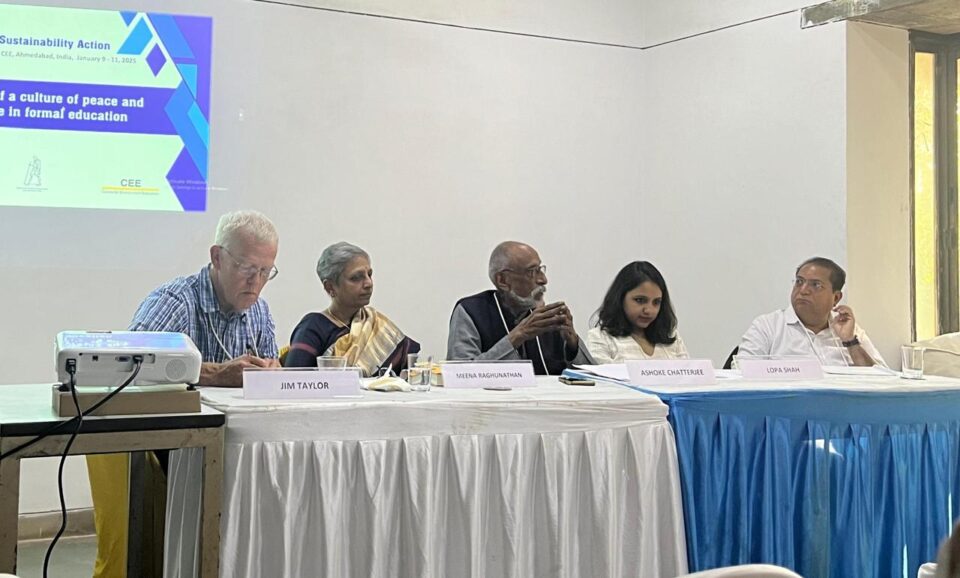Ahmedabad 12 January 2025: The Centre for Environment Education organised a three-day conference on Educating for Sustainability Action from January 9-11, 2025. The focus of the conference was on education-based solutions as the key to sustainability action. The conference witnessed participation from over 400 participants from across India and experts from 14 countries. The conference was attended by policymakers, academicians, youth, educators, teachers, practitioners, corporates and entrepreneurs.
The conference served as a platform for action-oriented discussions on thematic areas such as climate change, pollution, biodiversity, rural development, urban sustainability, waste management, circularity, and more aligning with global sustainability efforts.The conference was in line with CEE’s vision to foster a sustainable future through educational initiatives..
One of the thematic sessions, titled “Promoting a Culture of Peace and Non-Violence,” featured ConsciousLeap’s Founder, Mr. Sanjay Desai, as one of the distinguished speakers. The session convened thought leaders, advocates, and changemakers to discuss strategies for building a harmonious and inclusive world. Delving into the transformative potential of education in fostering peace, Mr. Desai remarked, “Gandhiji’s idea of Peace and Non-violence is not a distant ideal but a conscious practice rooted in understanding and compassion. Educating for Sustained Wellbeing is the bridge that lays the foundations for actions based on understanding and compassion. We are immensely grateful to CEE for creating this impactful platform and facilitating collaborations that truly drive meaningful change.”
Shri Ashoke Chatterjee, Former Director of NID, emphasized the importance of integrating well-being into environmental education. He stated, “From my understanding, the new policy emphasizes self-awareness and similar values, which are key to fostering holistic growth. I interpret this as an opportunity to identify the anchors within the National Education Policy (NEP) as well as our traditions, to create a more comprehensive and holistic understanding of environmental education.”
Shri Atul Pandya, Director of the Sabarmati Ashram, highlighted the relationship between human behavior and the broader discourse on non-violence. He remarked, “In our behavior towards nature, we can observe forms of violence even in the present day. In this context, we recognize that the social environment and the internal environment within ourselves are integral parts of the broader discourse on non-violence. At that time, we saw an opportunity to work towards addressing this interconnectedness.”
The session emphasised integrating peace education into formal and informal learning systems as a foundation for addressing societal discord. Discussions highlighted the importance of empowering youth as ambassadors of non-violence, tackling systemic inequalities, and fostering empathy driven dialogue within communities. Participants agreed that diversity, when embraced with compassion, could serve as a unifying force that nurtures social bonds and promotes solidarity.
In addition to speaking at the thematic session, ConsciousLeap actively participated in knowledge-sharing sessions and engaged with other organisations during the exhibition. These interactions underscored the importance of collective action and collaboration in addressing sustainability challenges.
CEE’s thoughtful curation of this event was a testament to their ongoing efforts to address the triple planetary crisis of climate change, pollution, and biodiversity loss.

